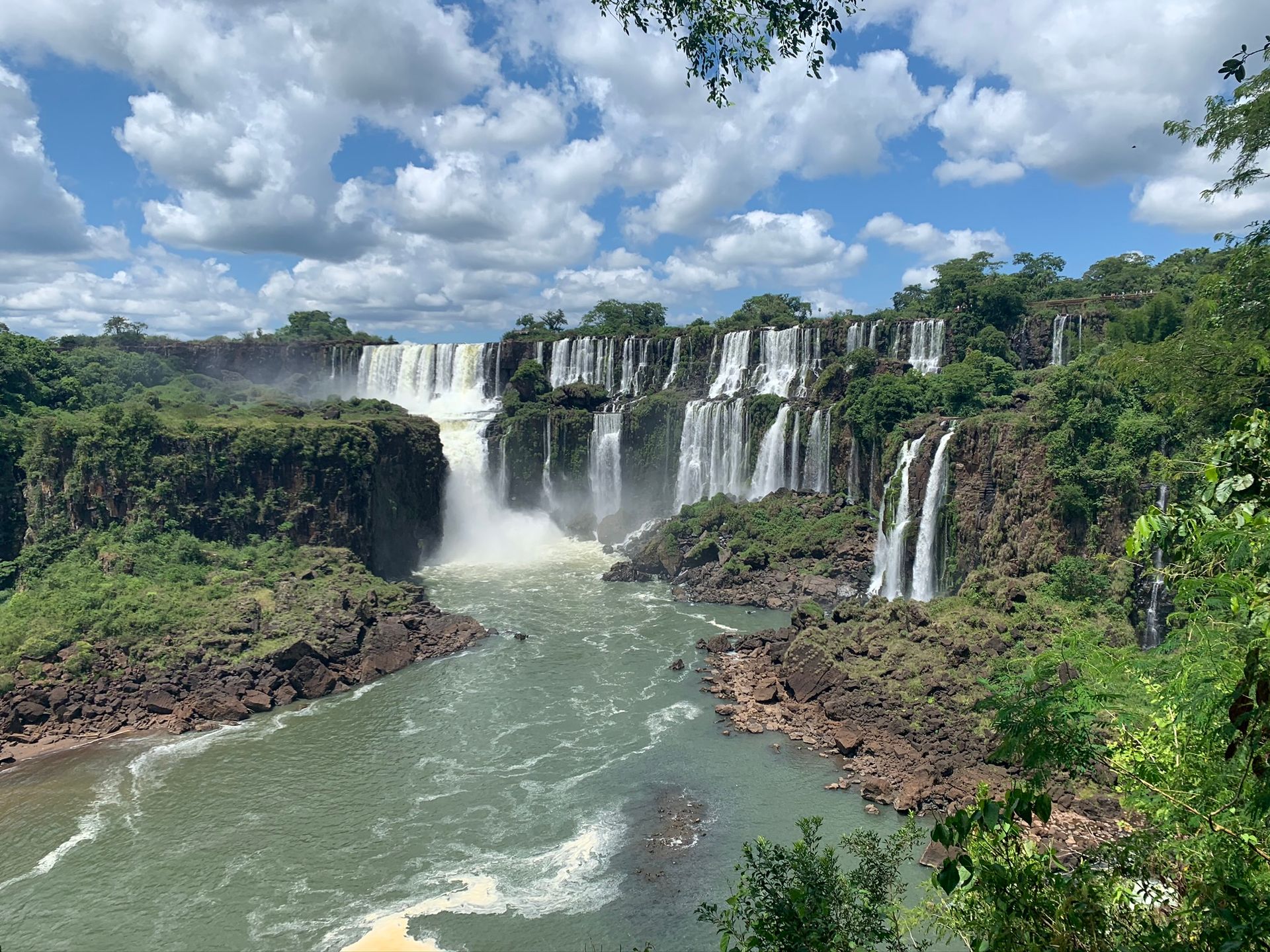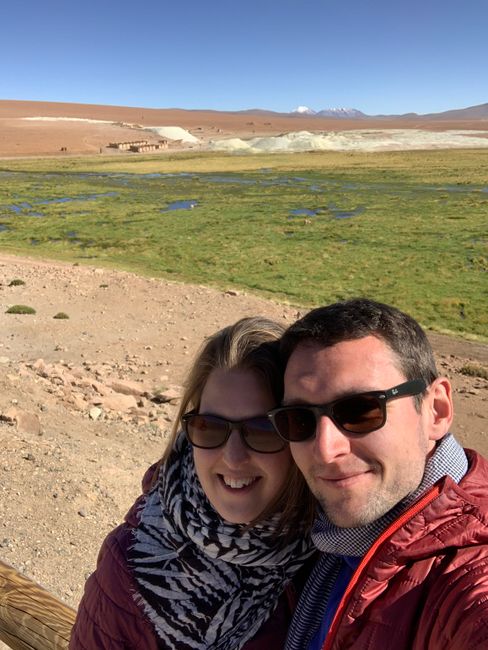More Traces of the Incas in the Sacred Valley
ຈັດພີມມາ: 13.03.2020
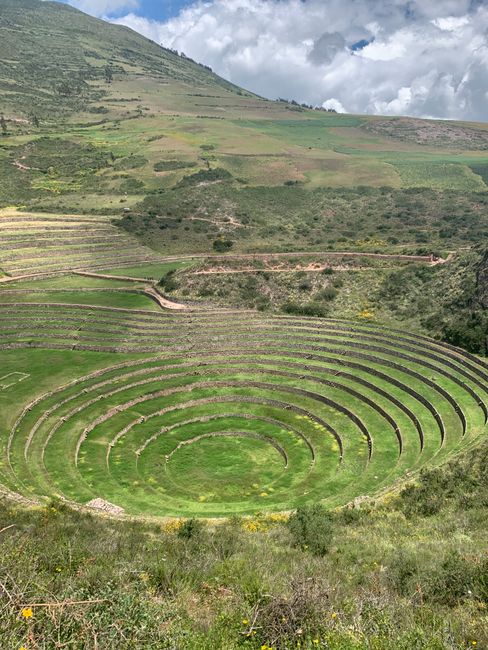
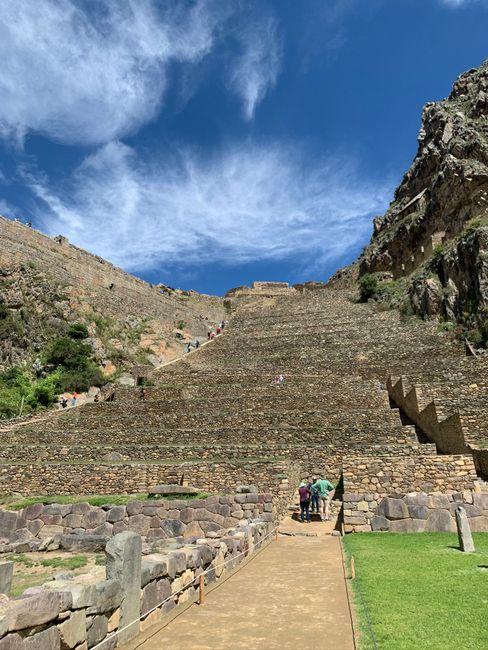
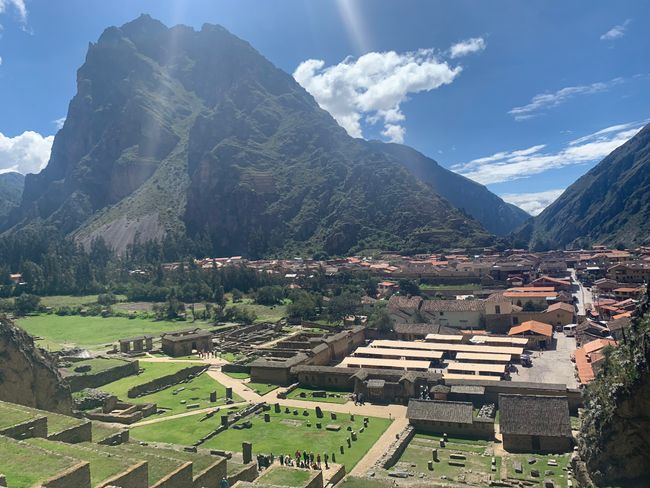
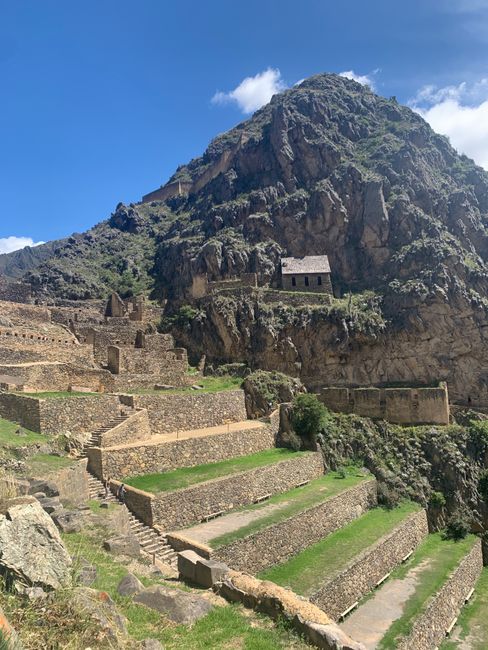
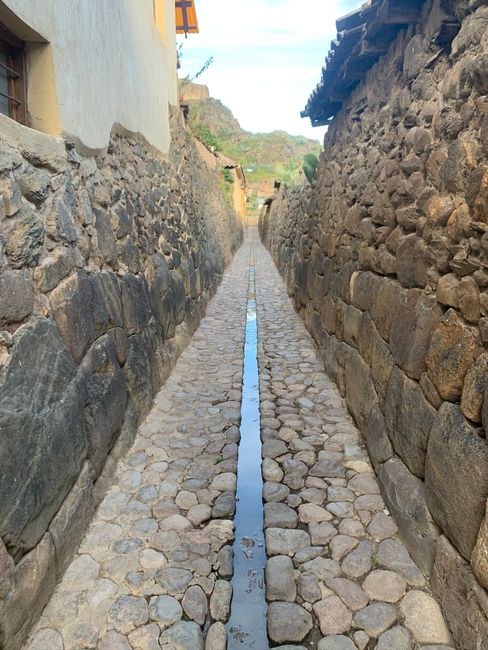
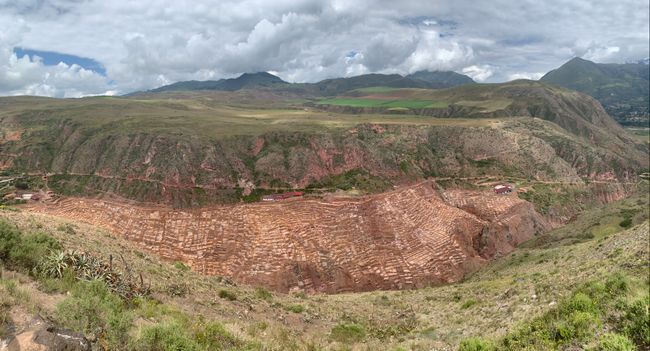
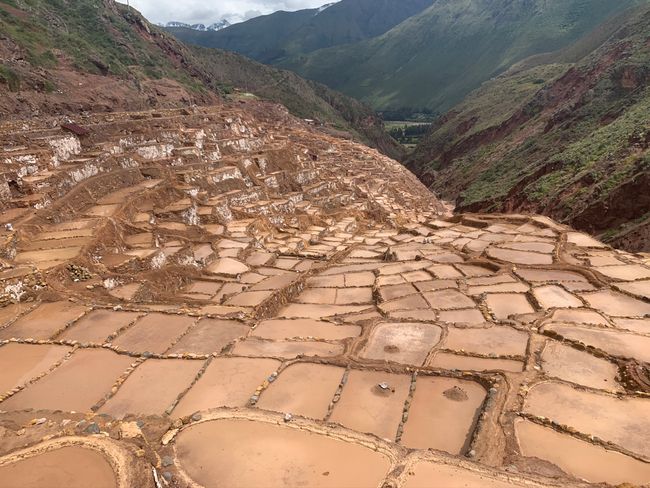
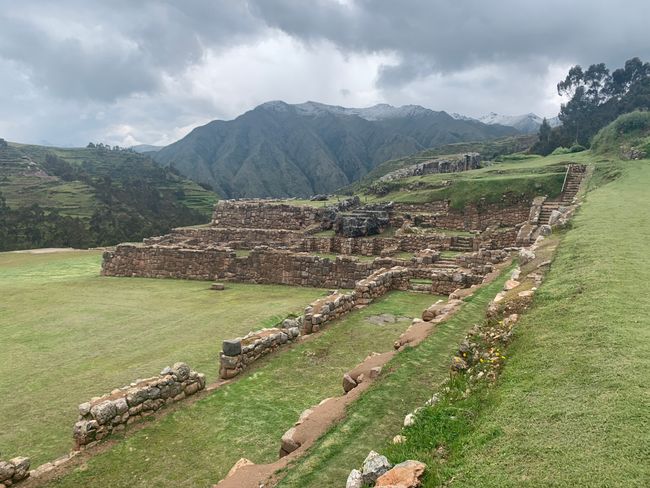
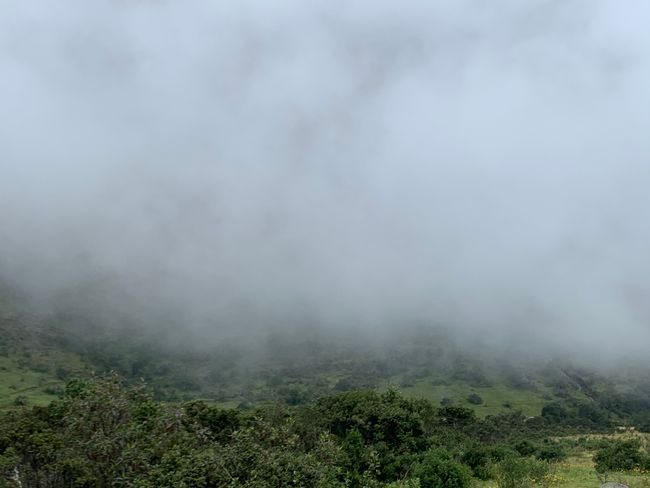
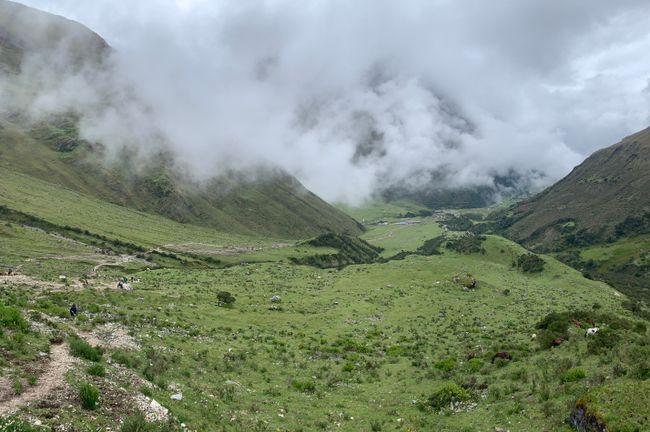
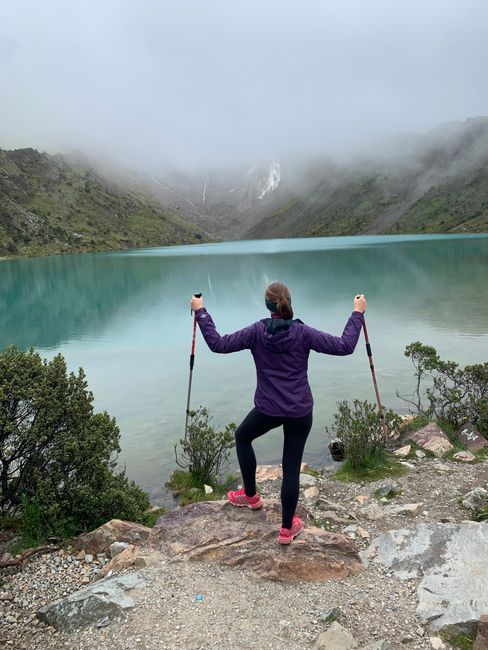
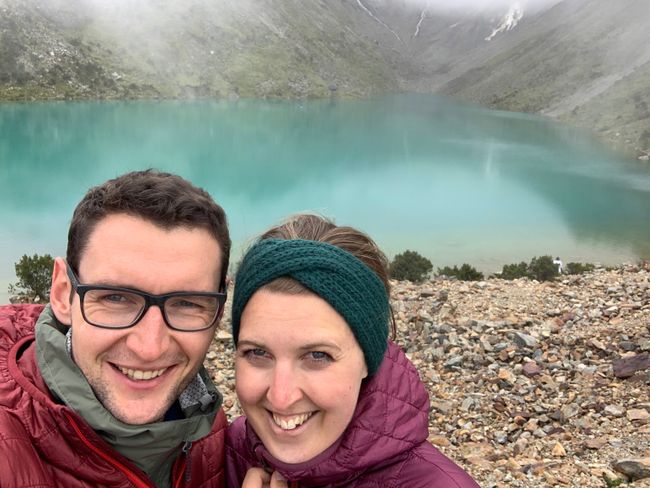
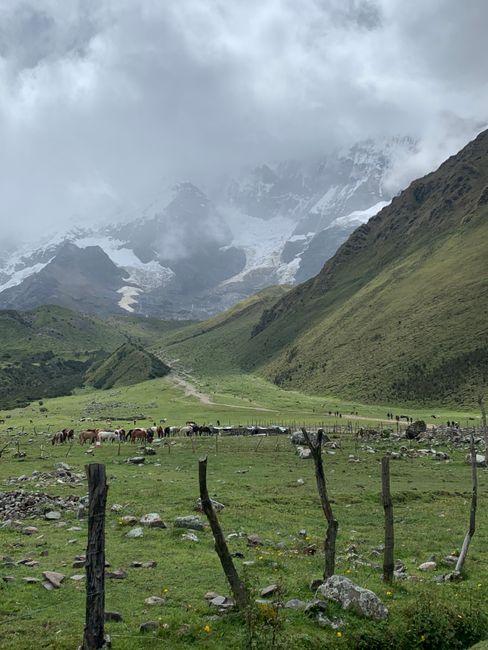
ຈອງຈົດຫມາຍຂ່າວ
After Machu Picchu, we decided to spend two more days in the so-called Sacred Valley of the Incas. We had already traveled through this elongated valley by bus and train on the way to Machu Picchu, and there are many more traces of the Incas to be found here.
We settled in Ollantaytambo - a rather sleepy town nestled between mountain ranges, except for a few day tourists. After the busy days, we enjoyed this tranquility very much. From our hotel room, we could even see the ruins of an Inca fortress and climbed it the next morning. Of course, they couldn't compete with Machu Picchu, but they provided a great backdrop for an extensive walk in the bright sunshine. The next day we headed back to Cusco. Since there are more worth seeing places scattered throughout the Sacred Valley on the way there, we decided to indulge in the luxury of a private driver to explore them.
For example, near Maras, there are countless terraces for salt extraction from the ground. Currently, during the rainy season, they are rather red-brown instead of white because the water has to evaporate over the next few months. A little further along a dirt track, we visited circular terraces of the Incas, which they apparently used as open-air laboratories for agriculture. The last stop we made in Chinchero with some admittedly not very well-preserved ruins. As in the other places, this site impressed with the beautiful nature that surrounded it: green mountains and meadows reminiscent of pastures in the Alps as far as the eye could see.
We then organized our last excursion in the area from Cusco. We decided not to hike the famous "Rainbow Mountains", but instead hike to the high mountain lake Humantay. For this, we booked a tour that started at 4 a.m. from our hostel. In the bumpy bus, we were able to take a nap and strengthen ourselves on the way with a small breakfast. Unfortunately, when we arrived at the base of the ascent to the lake, we had bad luck with the weather: it was drizzling and completely overcast, the visibility was really minimal. Nevertheless, we started the climb, which was supposed to take about 1.5 hours. Due to the altitude of over 4,000 meters, this turned out to be the most challenging hike of the entire trip for me (Tabea) (Tim's first place goes to the volcano hike in Pucón). But it was even more beautiful to turn around the last mountain peak and see the turquoise-colored lake. Unfortunately, we had to forego the view of the surrounding snow-covered mountains again due to poor visibility. At times, we sat completely enveloped in clouds on the lake shore. Nevertheless, the hike was a great experience and we wouldn't want to miss the day. On the descent, the weather cleared up a bit... perfect timing ;).
Next, we will head to the coastal lowlands of Peru, where we hope to soak up some warmth and sunshine.
A small addition regarding Corona: until a few days ago, the topic was virtually non-existent for us, especially because there are very few cases in South America. However, today it was reported that flights from Europe and Asia, like in the US, will be stopped. We're just hoping that we won't have any problems in the opposite direction. In addition, the topic will probably become more relevant in Peru: we couldn't get any disinfectant in a pharmacy, and a restaurant closed its salad buffet due to "health concerns". We read the news from Germany and the world daily and continue to monitor the situation.
ຈອງຈົດຫມາຍຂ່າວ
ຄໍາຕອບ
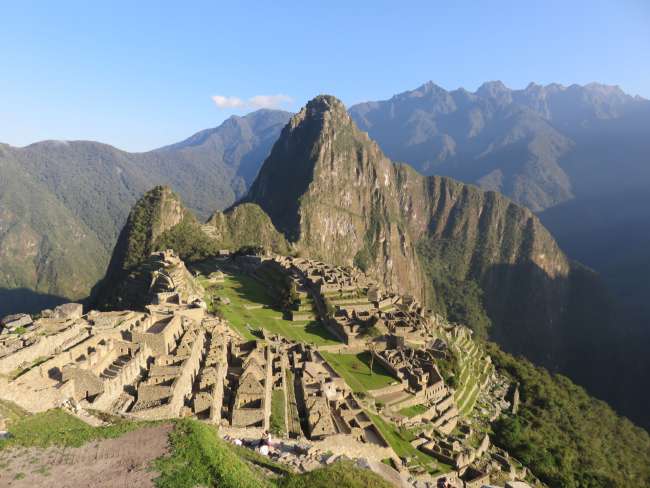
ລາຍງານການເດີນທາງ ເປຣູ
